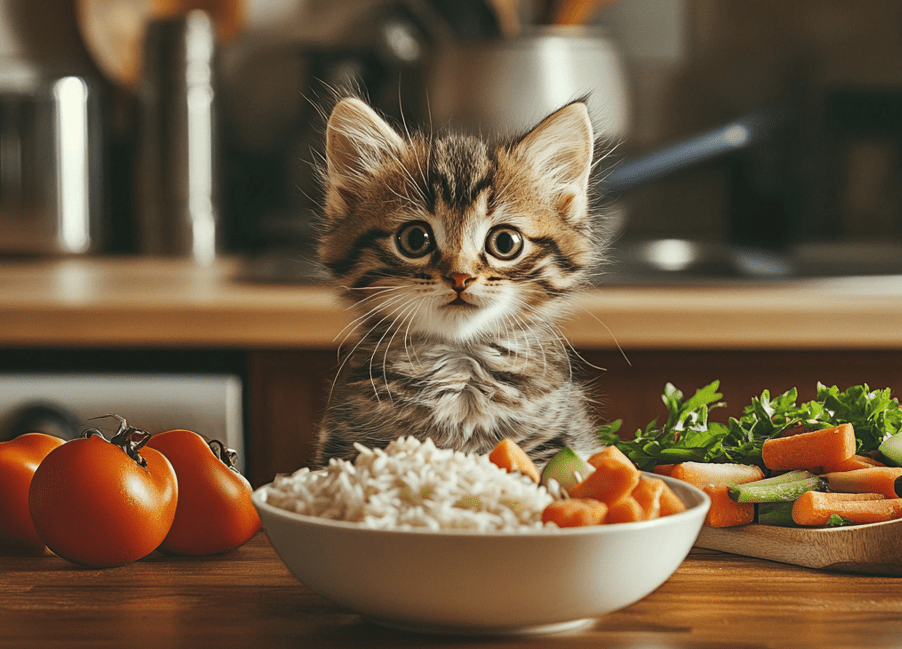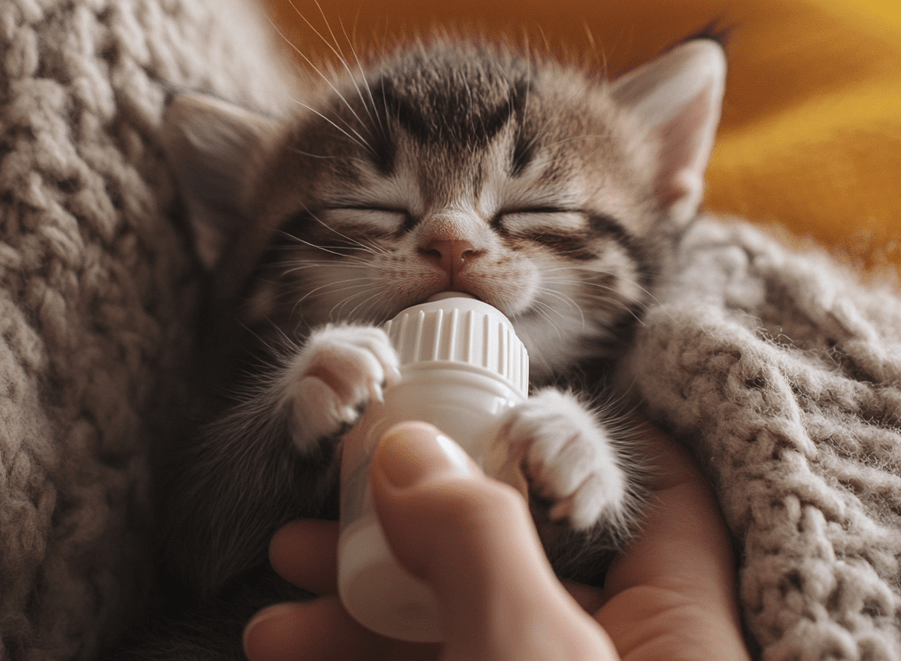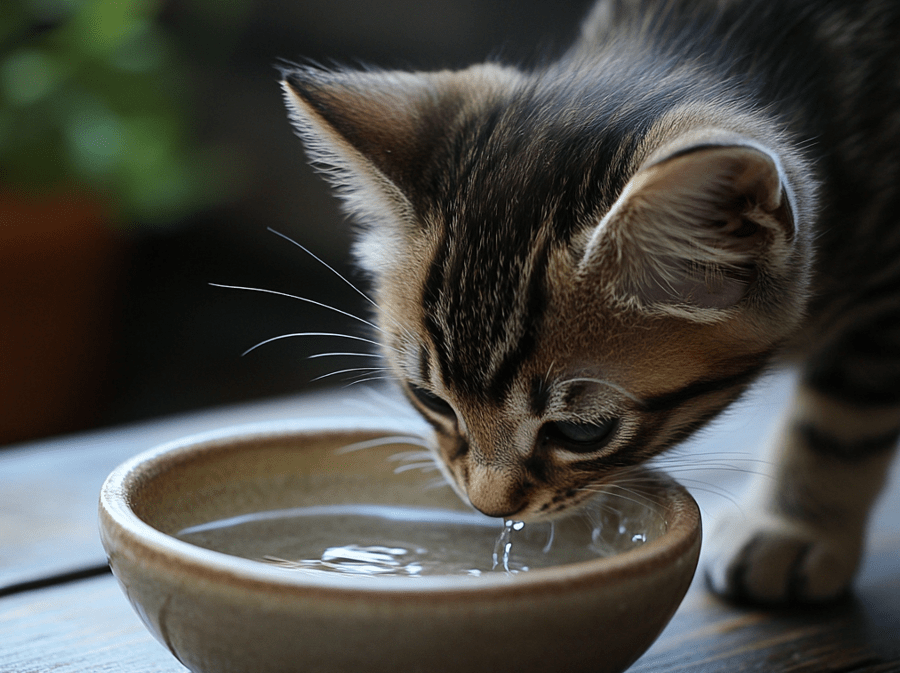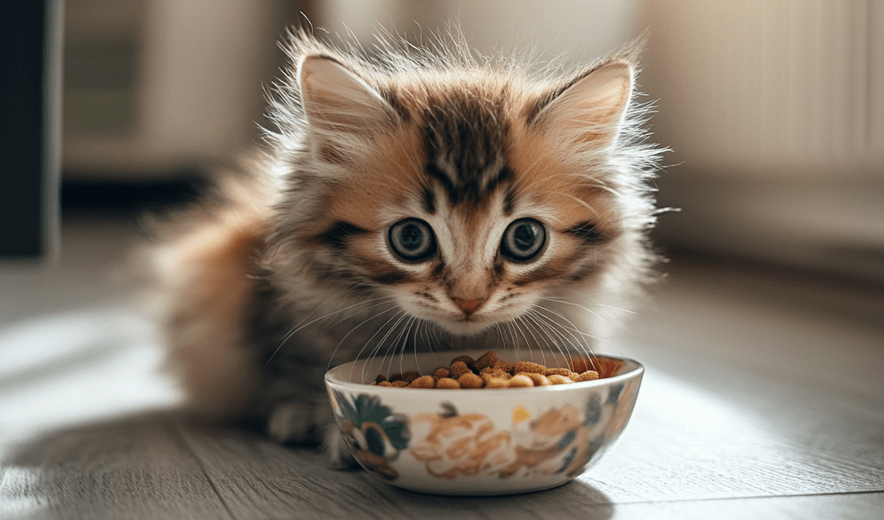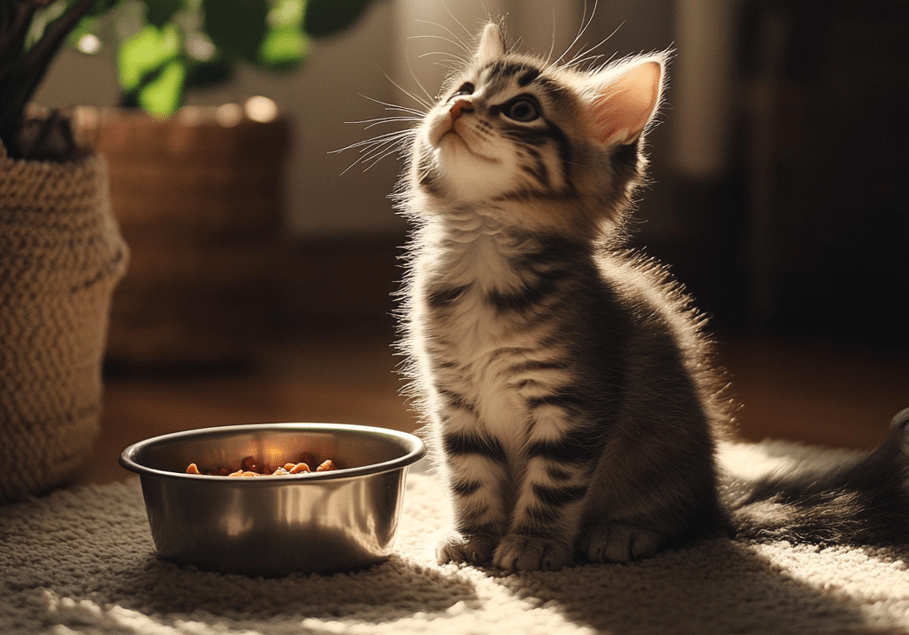
Our fur kids will greet us with love every time we come home after a long day with hugs, kisses and cuddles. So, come with me as I take you through an amazing journey to the realms of these wonderful beings and show you how to care for them and what food they need to help them burst into bloom.
When you own a new kitten, you learn quickly about feeding kittens and what to feed your kitten, how much to feed, and when to feed them as proper nutrition is essential especially during their first few months. Kitten food available in the market nowadays is so vast and more often on sale to get the attention of consumers. That said, first-time kitten parents might find the process intimidating. Poor food choices are also responsible for many digestive problems in kittens. We will explore the vital dos and don’ts of kitten feeding, common health issues, and recommended kitten food brands alongside milk replacers for this growth stage in a bid to help your kitten through making its way through his first few months.
To watch the summary of this article, just watch this video-
Kitten Feeding Dos
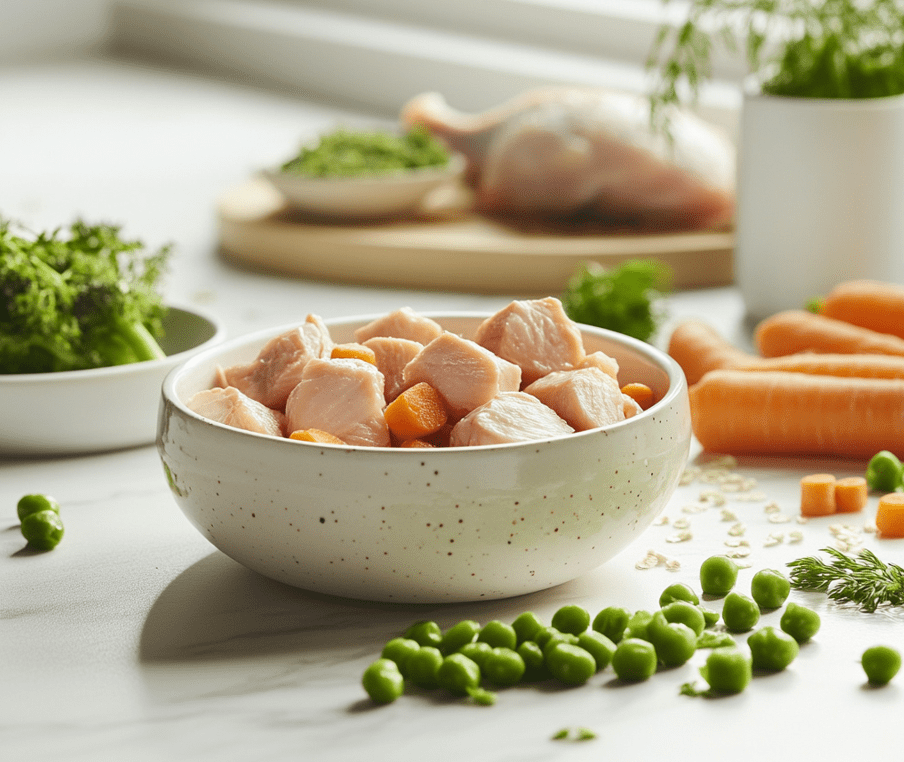
Select a Premium Kitten Food
A well-balanced and nutritious diet is the cornerstone of overall health, growth and wellness in controlling your kitten from going mad. Proper food is often a big factor in maintaining your kitten growth into the happiest and most playful cat you can have, so this list of best wet cat food for kitten’s foods may be helpful to guide you through. It is important, then, to scrutinize the ingredient list when looking at kitten food. You will want to look for the different types of protein sources, a properly-balanced fat diet with authentic veggies and fruit, as well as any complete vitamins and minerals which are essential to kitten growth.
Its best cat food to feed kittens that is made with chicken, turkey or fish as the main ingredient. These are an excellent source of proteins which help in muscle building and also aid in keeping a healthy coat and is the lifetime vigor.
Select product details from brands that are known to provide the special nutrition needs of your kittens so your little ones get a healthy start. Some pet-food companies make formulations appropriate for kittens that ensure they get the right ratio of nutrients to match their stage of life. By taking the time to consider premium kitten food options you can be sure you are giving your furry friend the best start in life and helping them live a healthy, active life
Introduce New Foods Gradually
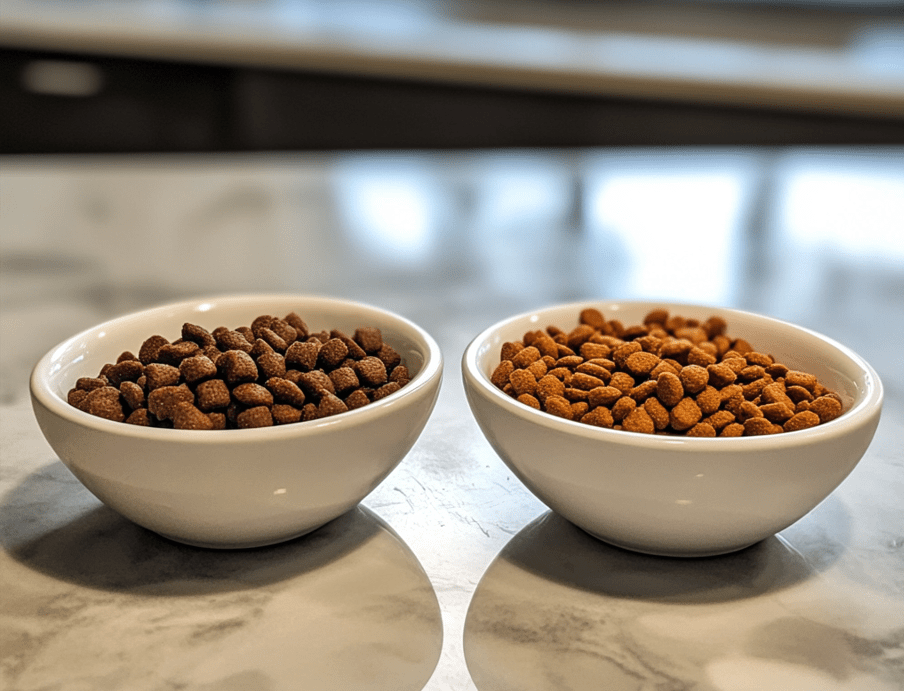
If you are introducing a new food for your kitten then a slow introduction is of utmost importance. Gradual revolution leads to fewer digestive troubles and an easy time adapting the fresh food on your kitten. The first few days of feeding the new food should consist of a small amount of the new food mixed into your kitten’s current diet. Gradually replace the old food with the new one over a period of one to two weeks. This slow conversion gives your kitten’s digestive system the time to up.
Also, watch your kitten closely during its transition. Watch for any signs of a possible upset stomach i.e. vomiting or diarrhea and if you are worried have your veterinarian check him/her out. By feeding your kitten this way, you can help them get access to a wide range of different foods that will promote good health and immunodeficiency
Provide Fresh and Clean Water Daily
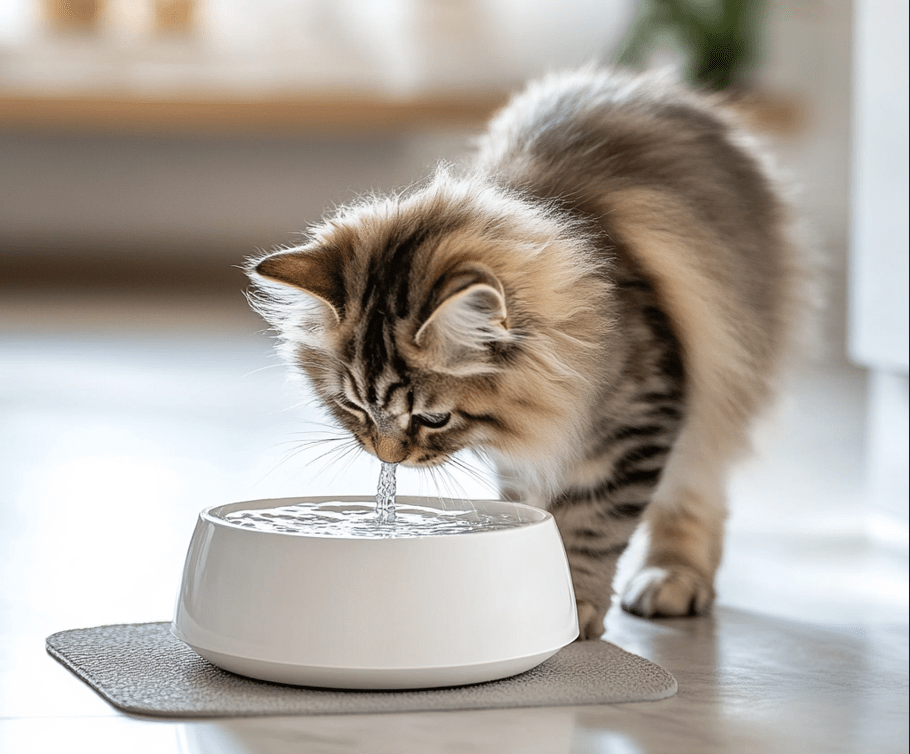
Make certain that your kitten has plenty of fresh, clean water to drink. Keep the water fresh so that your kitten will be more likely to drink from it by refilling the bowl with fresh water every day. Also, once a week with soap and water thoroughly clean the bowl to make sure there will be no bacteria accumulated. Use a water fountain : Many cats like running water, so this might make your cat drink more. Choose a good source of water for your kittens and make sure they are using it to keep their body hydrated properly, or not. All steps of kitten care are important to prepare and help your kitten Improve their Wellness
Get advice from a professional veterinarian
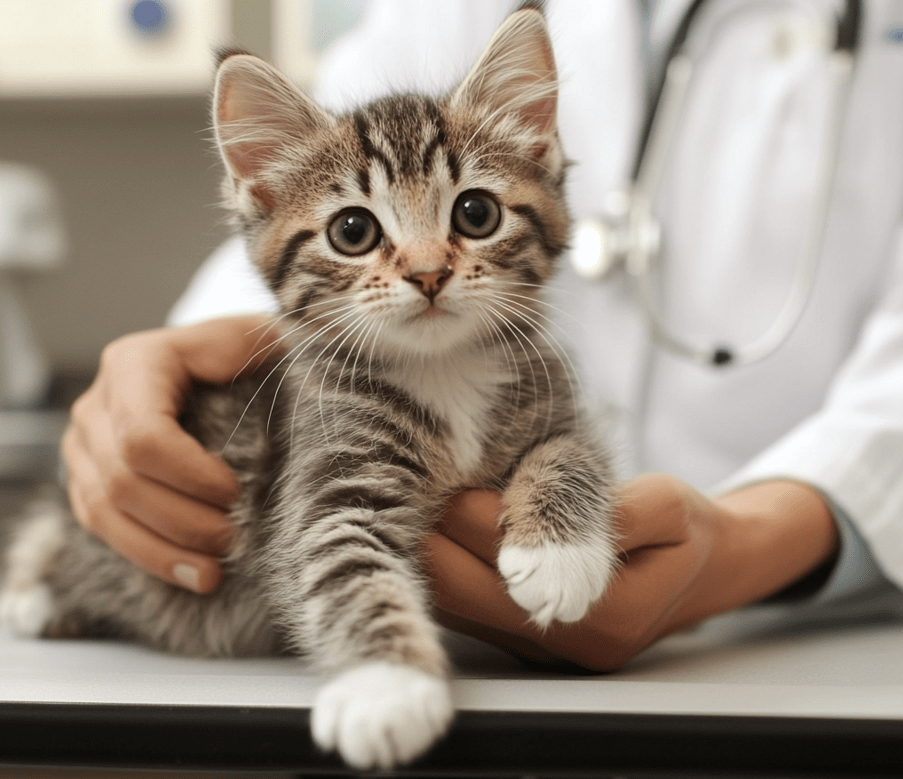
If you have any worries about your kitten’s food, growth or health you need to seek advice from your vet. They are trained and prepared to offer specific, personalized guidance for your kitties’ specific needs. This includes ensuring that you are catering to all of his dietary needs as well as health requirements — the earlier a medical concern is managed, the better. In addition, regular checkups mean you can relax in the knowledge everything is progressing well as your kitten turns into a healthy adult. Routine trips to the vet are vital in keeping your kitten healthy longer-term.
Always remember that “Prevention is better than cure.”
Kitten Feeding Don’ts
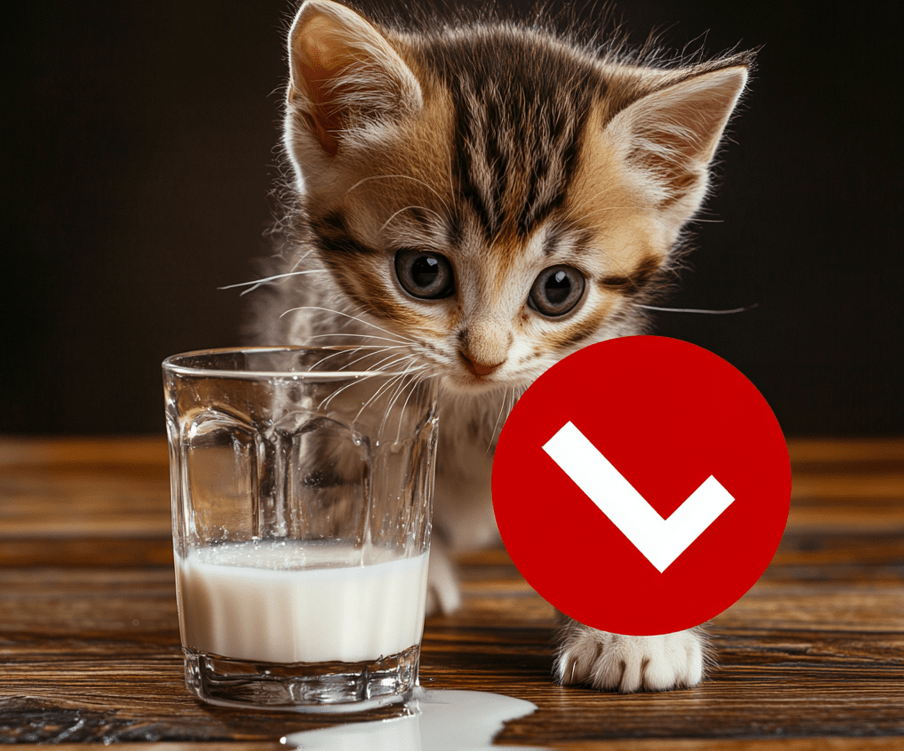
Do not give adult cat food to your kitten
You should not feed your kitten any adult cat food. You have to bear in mind that kittens do have different dietary needs from older cats and eating on the adult cat food could result in some serious health problems. These foods are usually low in calories, (needed for growth) DHA (for brain development) and calcium (for healthy bone growth). Also, adult cat food might contain the wrong ingredients such as excessive amounts of ash or magnesium which may result in urinary tract issues.
Avoid Feeding Your Kitten Cow’s Milk
Cow’s milk should never be given to your kitten as this can cause them digestive upset like diarrhea. Kittens do not have the enzymes necessary to effectively digest lactose (the sugar found in milk) and can experience unpleasant gastrointestinal symptoms. However, if you feel the need to give a milk-like substance, choose a kitten milk replacer. These are specifically designed to address the specific nutritional requirements of kittens and offer the correct proteins, fats, as well as essential vitamins and minerals. It is extremely important for kittens to have quality nutrition in order for them to grow strong and healthy
Do Not Feed Them Table Scraps
Always prioritize the health of your kitten, never feed them leftover human food. Chocolate, onions, garlic and grapes are among many of the things that can be incredibly toxic to kittens and cause major digestive issues as well as obesity. In addition, the nutritional needs of a kitten are quite different from that of an adult dog. For this reason, it is important to feed your kitten a healthy diet which is designed especially for them. This will help them grow healthy, strong adult plants.
Do Not Overfeed Your Kitten
Monitoring your kitten’s weight is important since the more rapidly your kitten gains weight, you may need to increase portion size. In some instances your kitten might need specialized diet advice and the professional opinion of a vet can help you in tailoring it to his or her needs. Furthermore, free-feeding your kitten can result in your feline pal overeating which will only make keeping a close eye on proper portion control that much tougher. It leads to obesity and further risk of numerous other health problems.
Obesity is another health problem that can arise due to poor diet in kittens. In dietary terms, you may notice less-than-ideal symptoms and consequences that include a wide range of gastrointestinal issues, dental problems or nutritional deficits which could harm the kitten in the long-run. Thus, it is essential to introduce proper feeding routines early and train them to toddlers.
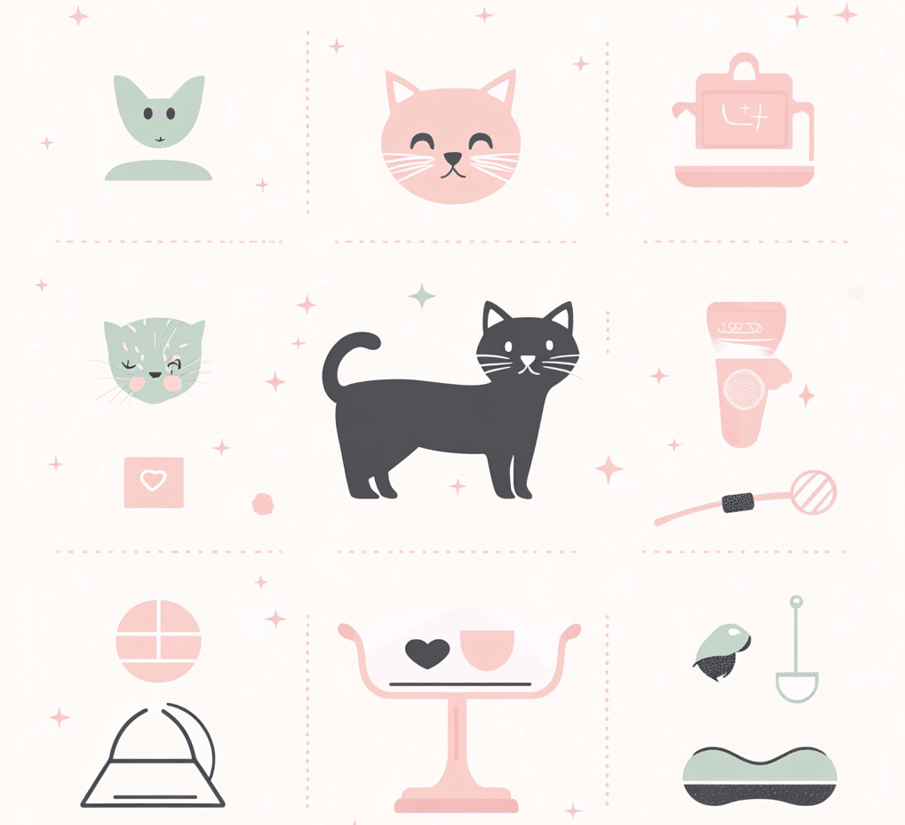
Dental Issues
A sugary or high-carbohydrate diet can cause kittens to have tooth decay, periodontal disease and other dental problems. You should also choose higher quality, lower sugar and carbohydrate-containing foods as well as treats and toys that will not damage your kittens teeth.
Pancreatitis
Pancreatitis: If you eat a diet high in fat, you may develop Pancreatitis which is inflammation of the pancreas. Choose a low-fat kitten food; avoid high-fat treats or table scraps.
Hairballs
Hairballs are associated with gastrointestinal complications, and can be caused by a poor quality diet with low fiber. It is necessary to go for a diet which has high fiber and give your kitten enough time for grooming.
Choking Hazards
When you feed your kittens too large a piece of food or something inappropriate, choking can happen. Provide them only specially-made kitten food, do not give them small toys or anything which can potentially choke the kittens
Dehydration
Kittens can become dehydrated if fed only dry food. Fresh water should be available at all times, and consider feeding wet food.
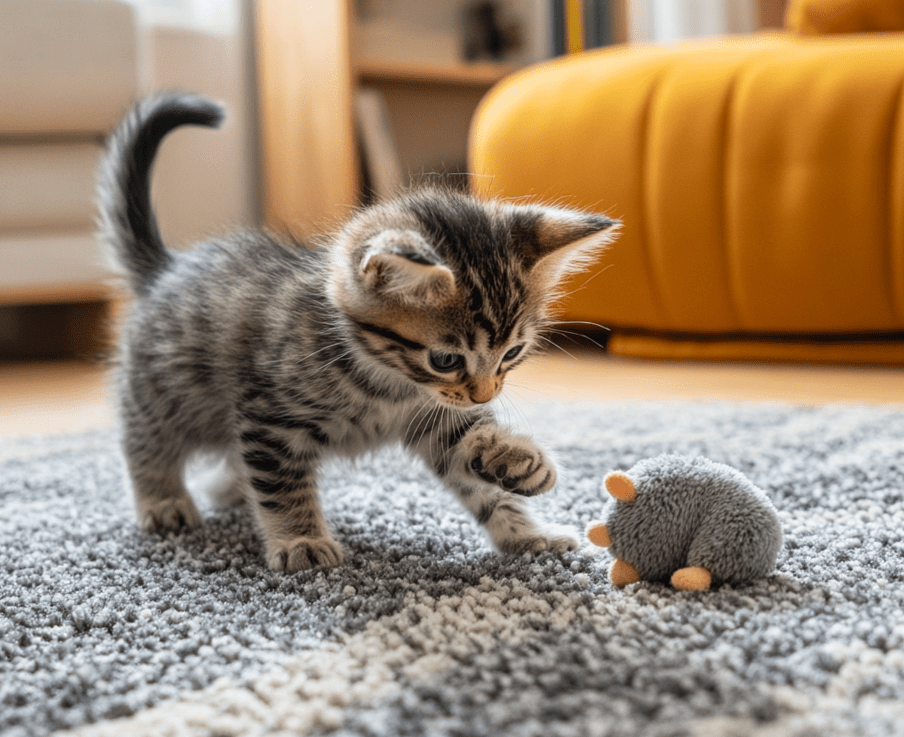
So, choose the high-quality food that provides your kitten a balanced diet, restrain from offering human feed and other poisonous household things and in case of any doubt just consult your veterinarian as well.

